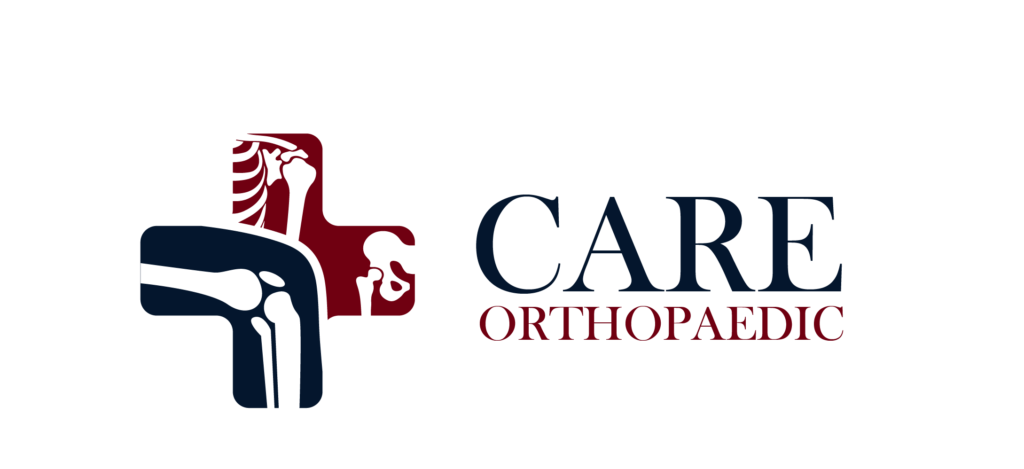Undergoing shoulder arthroscopy for rotator cuff repair at CareOrthopaedics in Bengaluru is a significant step toward regaining full shoulder function and alleviating pain. Post-surgery, patients should expect an initial period of immobilization, often involving the use of a sling to keep the shoulder stable. Swelling and discomfort are common, but manageable with prescribed pain medications and ice applications.
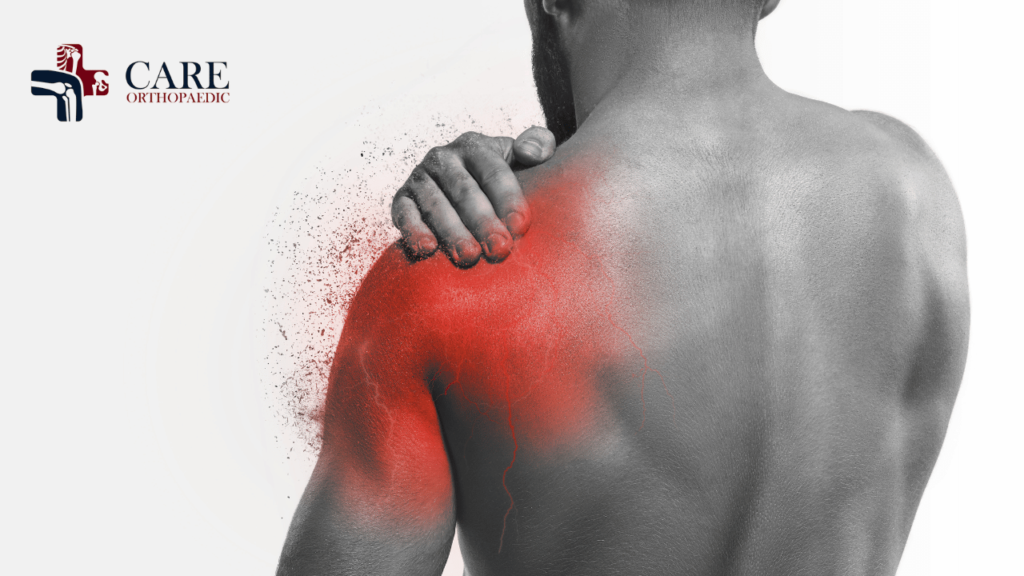
Physical therapy usually begins a few weeks after the procedure to promote healing and restore strength. The entire recovery process can take several months, with gradual improvements in shoulder function and pain reduction. Regular follow-up appointments at CareOrthopaedics ensure that your recovery is on track.
How do Rotator Cuff Injuries Happen?
Rotator cuff injuries can result from various factors, including:
- Acute Injuries: Sudden impacts or falls, often seen in sports or accidents, can cause tears in the rotator cuff.
- Overuse: Repetitive overhead motions, common in activities like swimming, tennis, or painting, can lead to chronic wear and tear.
- Degeneration: Age-related wear and tear weakens the tendons, making them more susceptible to injury, particularly in individuals over 40.
- Poor Posture: Chronic poor posture can lead to muscle imbalances and increased strain on the rotator cuff.
What are the Symptoms of a Rotator Cuff Tear or Injury?
Symptoms of a rotator cuff tear or injury include:
- Pain: Persistent shoulder pain that worsens with movement or at night.
- Weakness: Difficulty lifting or rotating the arm due to weakened muscles.
- Limited Range of Motion: Reduced ability to move the shoulder, especially in overhead activities.
- Crackling Sensation: A crackling or popping sound when moving the shoulder.
Early diagnosis and treatment at CareOrthopaedics can prevent further damage and complications.
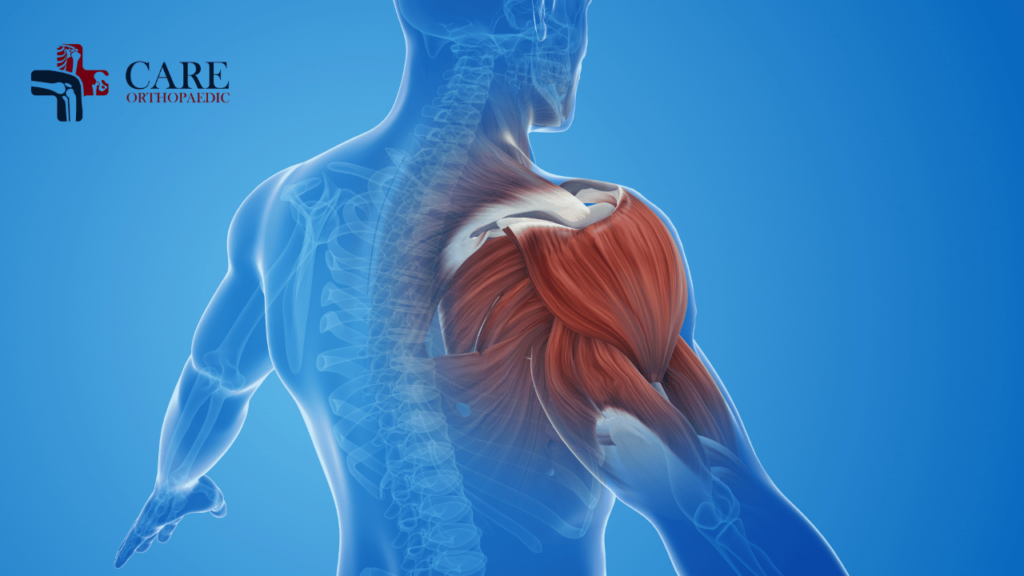
What is Shoulder Arthroscopy?
Shoulder arthroscopy is a minimally invasive surgical procedure used to diagnose and treat shoulder joint problems. During the procedure, a small camera called an arthroscope is inserted into the shoulder joint through a small incision. This camera projects images onto a screen, allowing the surgeon to see the inside of the shoulder clearly. Additional small incisions are made to insert surgical instruments for repairing the rotator cuff.
Arthroscopy is favored for its precision and minimal disruption to surrounding tissues, leading to faster recovery times compared to open surgery.
How much does Rotator Cuff Surgery Cost?
The cost of rotator cuff surgery at CareOrthopaedics in Bengaluru can vary based on several factors:
- Location: Costs can differ within Bengaluru and across different facilities.
- Healthcare Facility: Private hospitals may charge more than public ones.
- Surgeon’s Fees: Experienced surgeons may have higher fees.
- Insurance Coverage: Insurance can significantly offset out-of-pocket expenses.
On average, the cost can range from INR 1,50,000 to INR 4,00,000, including surgeon fees, anesthesia, and hospital charges. Consulting with CareOrthopaedics and your insurance company can provide a more accurate estimate.
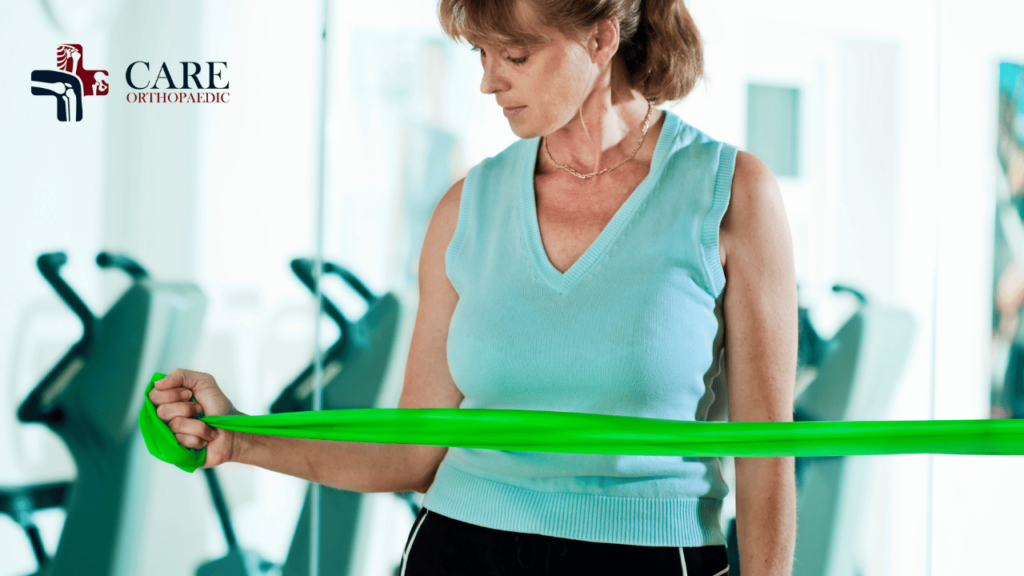
Are there any Potential Complications?
While shoulder arthroscopy is generally safe, potential complications include:
- Infection: Though rare, infections can occur at the incision sites.
- Nerve Damage: Unintended damage to surrounding nerves, leading to numbness or weakness.
- Stiffness: Post-surgery stiffness can limit shoulder mobility.
- Blood Clots: Risk of blood clots in the arm, especially if immobility is prolonged.
- Re-tear: There’s a possibility of the rotator cuff re-tearing, particularly if post-surgery care is not followed properly.
Discussing these risks with your surgeon at CareOrthopaedics can help mitigate concerns and prepare for a smooth recovery.
What should you Expect?
Post-surgery, you can expect a structured recovery plan involving:
- Immobilization: Using a sling to keep the shoulder stable and minimize movement.
- Pain Management: Prescribed medications and ice to manage pain and swelling.
- Physical Therapy: Gradual introduction of exercises to restore strength and mobility.
- Follow-up Appointments: Regular check-ins with your surgeon to monitor healing progress.
Adhering to the recovery plan provided by CareOrthopaedics is crucial for successful healing and restoring shoulder function.
How can you manage any Postoperative Pain and Discomfort?
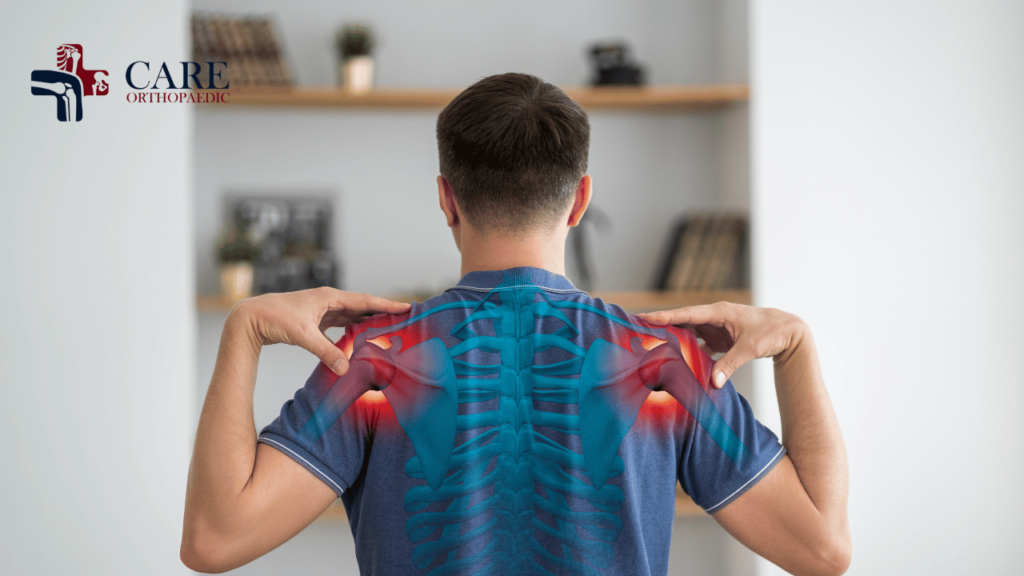
Effective pain management is vital for a comfortable recovery. Strategies include:
- Medications: Following prescribed painkillers and anti-inflammatory drugs.
- Ice Application: Regularly apply ice packs to reduce swelling and numb the pain.
- Rest: Adequate rest is needed to allow the body to heal without strain.
- Gentle Movement: Engaging in light, prescribed exercises to prevent stiffness and promote blood flow.
Consulting with CareOrthopaedics about pain management options ensures a tailored approach to your needs.
How Long Does It Take to Recover From Rotator Cuff Surgery?
Recovery time varies based on the severity of the injury and the individual’s health, but a typical timeline includes:
- Immediate Post-Surgery (0-6 weeks): Immobilization and Initial Healing.
- Early Rehabilitation (6-12 weeks): Gradual reintroduction of movement through physical therapy.
- Strengthening Phase (3-6 months): Focus on regaining strength and full range of motion.
- Full Recovery (6-12 months): Achieving optimal shoulder function and returning to regular activities.
Consistency with rehabilitation exercises and follow-up appointments at CareOrthopaedics accelerates the recovery process.
What should you expect from Postoperative Physical Therapy?
Postoperative physical therapy is integral to recovery, focusing on:
- Range of Motion Exercises: Gentle movements to restore flexibility.
- Strength Training: Gradual introduction of resistance exercises to build muscle strength.
- Functional Training: Activities mimicking daily tasks to regain shoulder functionality.
- Manual Therapy: Hands-on techniques to improve mobility and reduce pain.
Collaborating closely with your physical therapist at CareOrthopaedics ensures a personalized rehabilitation plan tailored to your progress.
How can you help Prevent Future Rotator Cuff Injuries?
Preventing future injuries involves:
- Strengthening Exercises: Regular shoulder-strengthening exercises are needed to maintain muscle balance.
- Proper Technique: Use correct techniques during activities to avoid unnecessary strain.
- Warm-Up and Stretching: Adequate warm-up and stretching before physical activities to prepare the muscles.
- Posture Awareness: Maintaining good posture to reduce chronic strain on the shoulder.
- Gradual Progression: Avoiding sudden increases in activity intensity to prevent overuse injuries.
Incorporating these preventive measures into your routine can significantly reduce the risk of future rotator cuff injuries.
Meet Dr. K.M. Ponnanna at CareOrthopaedics in Bengaluru
CareOrthopaedics in Bengaluru is proud to have Dr. K.M. Ponnanna, a highly skilled and experienced Orthopaedic surgeon, as part of our team. Dr. Ponnanna specializes in shoulder, hip, and knee sports injuries, arthroscopy, and joint replacement.
Qualifications and Fellowships
Dr. K.M. Ponnanna holds several prestigious qualifications and fellowships:
- MS (Ortho), DNB (Ortho), FAOA (Australia), FIAS, FIJR (ISAKOS Pune)
- Fellowship in Adult Reconstruction Surgery (Shoulder, Hip, and Knee) ISAKOS, Pune
- AOA Sydney Orthoclinic Shoulder, Elbow, and Knee Sports and Arthroplasty Fellowship, Australia
- AOA Clinical Arthroplasty Hip, Knee, and Sports Fellowship, Sydney, Australia
- Fellowship in Adult Reconstruction Surgery (ISAKOS, Pune)
Dr. Ponnanna’s extensive training and experience make him an expert in treating complex shoulder, hip, and knee conditions. His commitment to patient care ensures that every patient receives the highest standard of treatment and support throughout their recovery journey.
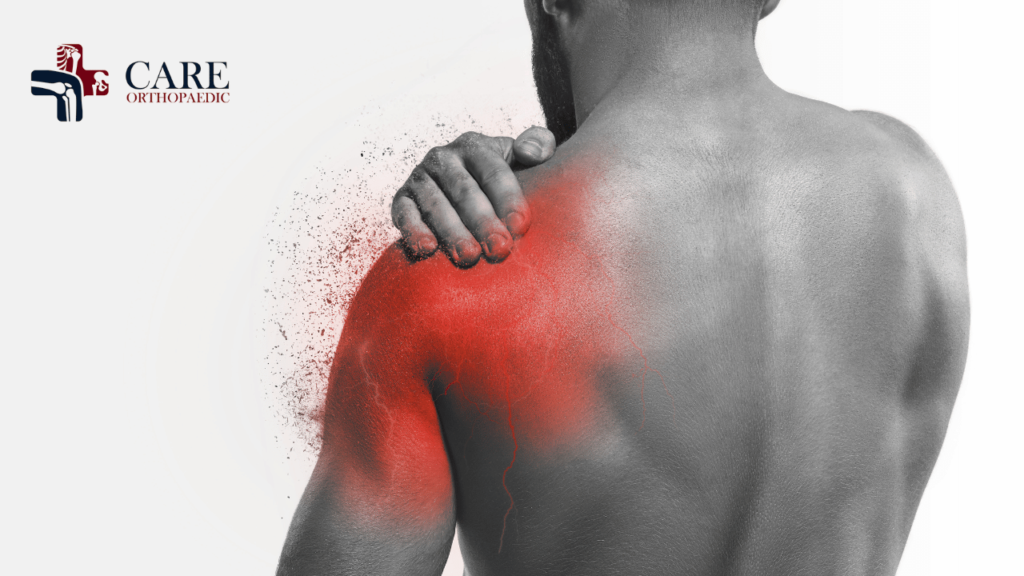
Why choose CareOrthopaedics in Bengaluru?
CareOrthopaedics is dedicated to providing comprehensive Orthopaedic care with a patient-centered approach. Our team of skilled surgeons, including Dr. K.M. Ponnanna, uses the latest techniques and technologies to ensure the best possible outcomes for our patients. Whether you’re dealing with a rotator cuff injury, shoulder dislocation, or other Orthopaedic conditions, CareOrthopaedics in Bengaluru is here to help you regain your mobility and improve your quality of life.
Conclusion
In conclusion, undergoing shoulder arthroscopy and rotator cuff repair at CareOrthopaedics in Bengaluru can significantly improve your quality of life. Understanding the procedure, recovery expectations, and preventive measures helps ensure a smooth journey towards full recovery and optimal shoulder health. CareOrthopaedics is dedicated to providing comprehensive care and support throughout your recovery process.
